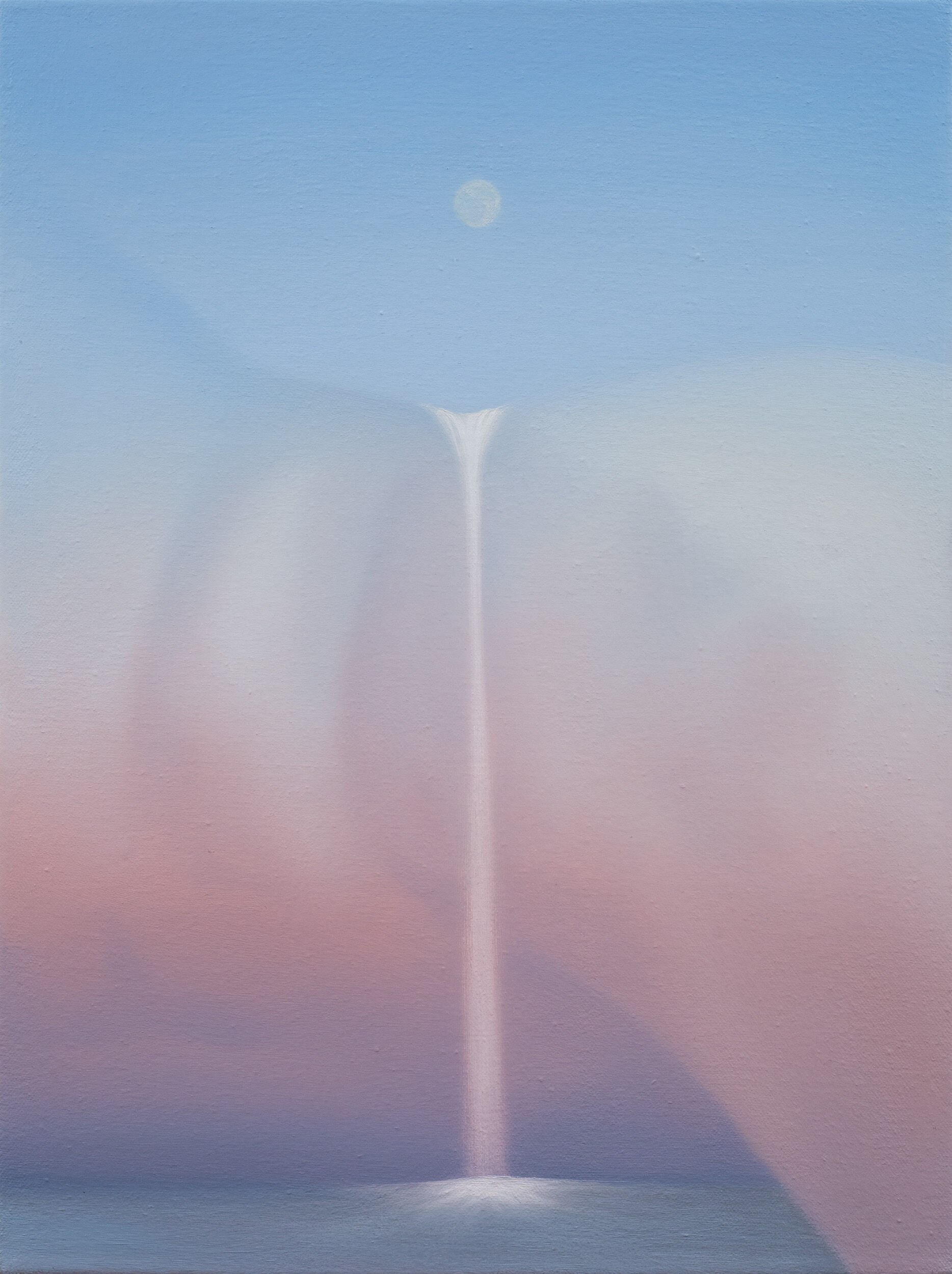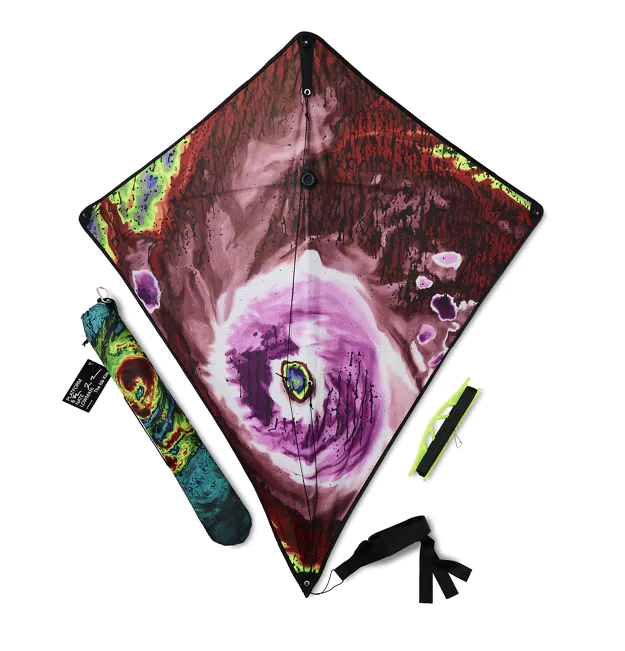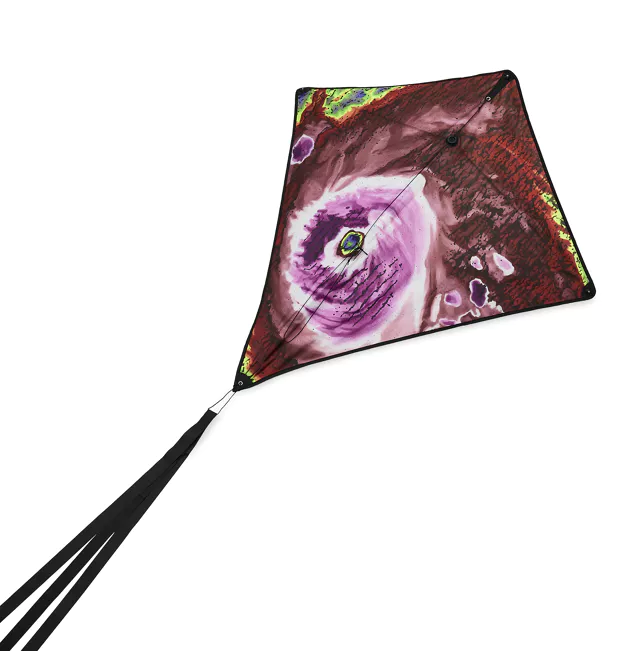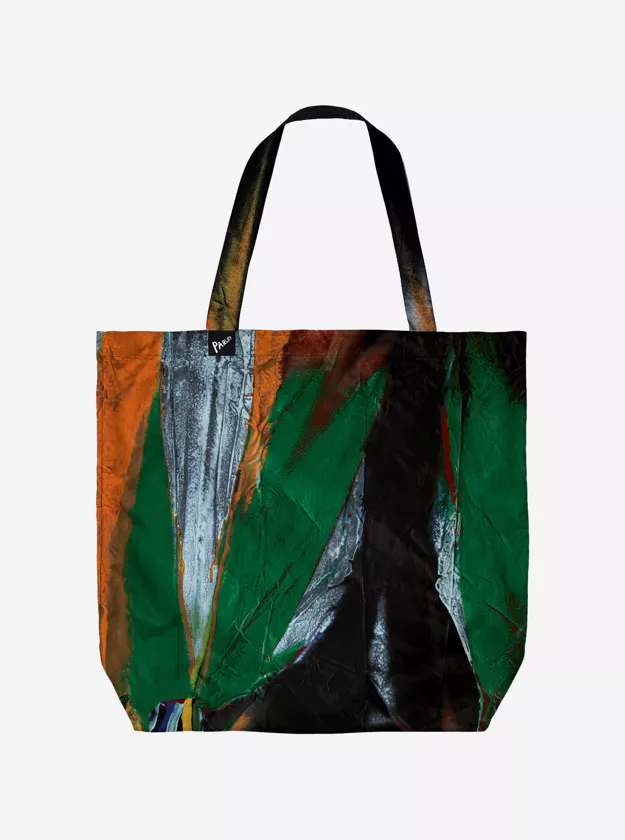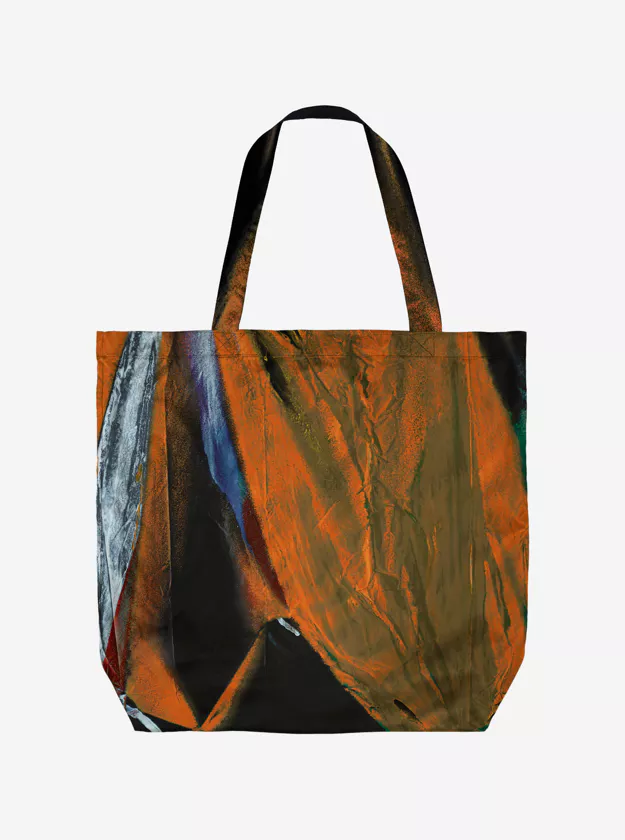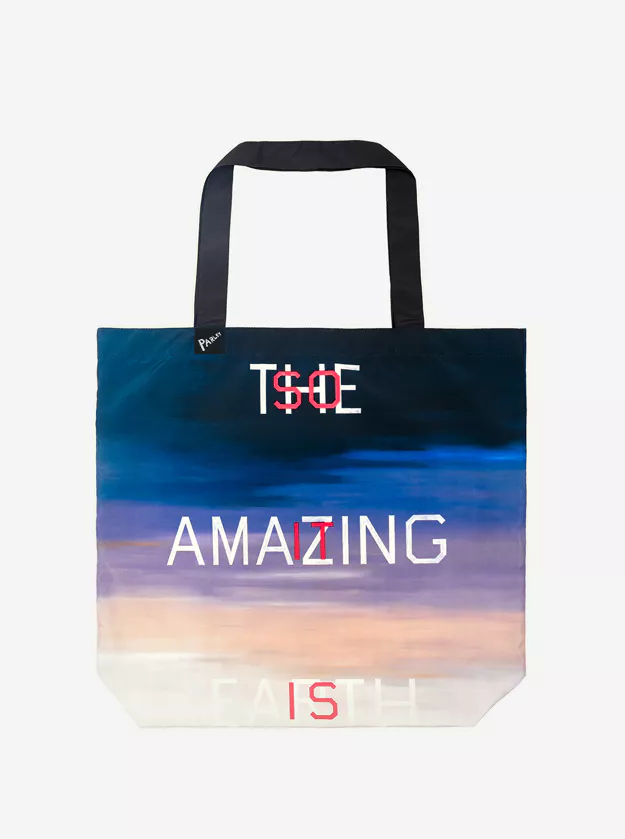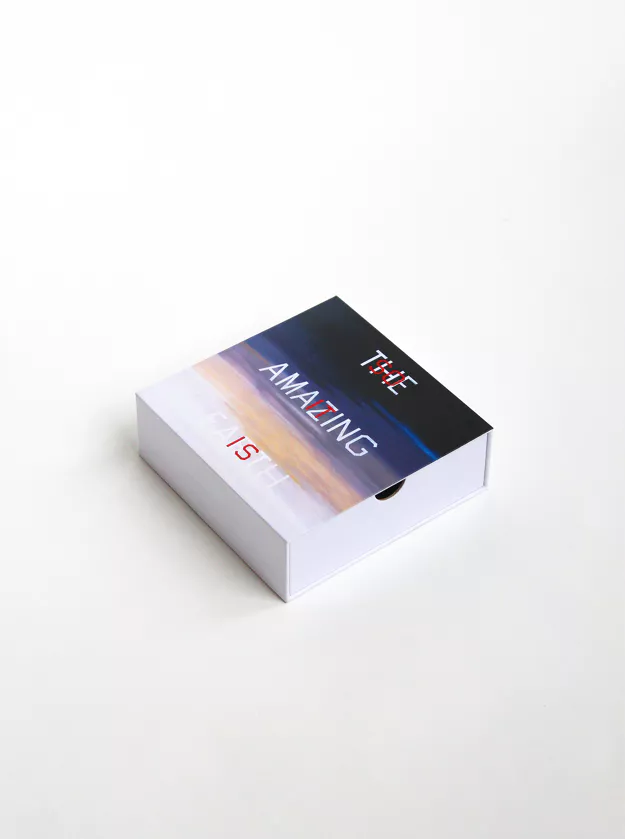About the artwork:
An artist proof for a larger piece, this painting is part of a series titled “I’d Rather Sink Than Call Brad for Help” (a phrase familiar from one of Roy Lichtenstein’s most noted works). In it, the male form begins disappearing into the landscape, becoming almost invisible. Despite its buoyancy, it continues to obstruct the landscape, bringing with it a waterfall. The water cascading over its back suggests that the figure is melting and contributing to the body of water below it.
In this recent series, Alexandra Rubinstein examines man’s relationship to land and the binary gendering of nature that has shaped it. After centuries of exploring and exploiting Earth, men have drained its resources, leaving it on the verge of a meltdown. These paintings draw attention to water, arguably the most critical natural resource threatened by climate change, by depicting the dissolution of man within beautiful yet surreal environments that illustrate the planet’s inevitable destruction. By tying the male figure and its genitalia to the fragility of nature, rather than the female, Rubinstein exposes man as vulnerable, challenging familiar ideas of masculine dominance and strength.
Inspired by the arduous experience of immigrating on the cusp of puberty, Alexandra Rubinstein’s art focuses on the intersection of culture, gender, and power. By combining mundane and familiar images with explicit ones, she creates a new narrative that rebels against social constructs. Her perspective and commentary are often expressed through men’s bodies, and particularly their sex organs, as a source of judgment and scrutiny—an art historical realm usually dominated by the female figure.
About the artist:
Inspired by the arduous experience of immigrating on the cusp of puberty, Alexandra Rubinstein’s art focuses on the intersection of culture, gender, and power. By combining mundane and familiar images with explicit ones, she creates a new narrative that rebels against social constructs. Her perspective and commentary often get expressed through men’s bodies, particularly their sex organs, as a source of judgment and scrutiny—an art historical realm usually dominated by the female figure.
Alexandra Rubinstein Rubinstein was born in 1988 in what is now known as Yekaterinburg, Russia, and lives in Brooklyn, NY. She earned her BFA from Carnegie Mellon University in Pittsburgh, PA (2010).
Rubinstein has mounted solo exhibitions at the Mother Gallery in New York City, NY (2022) and Established Gallery in Brooklyn, NY (2020).
She has participated in group shows such as Paroxysm at Westbeth Gallery, New York, NY (2023); Night, Light at Cob Gallery in London, UK (2023); Even A Cat Can Look At The Queen at Mrs. Gallery in Maspeth, NY (2022); A Woman's Right to Pleasure at Sotheby's in Los Angeles, CA (2022); Small Works at The Royal in Brooklyn, NY (2021); and others.
Her art has been featured in New American Paintings, Huffington Post, Juxtapoz, Hyperallergic, Forbes, Cosmopolitan, GQ, Playboy, Real Time with Bill Maher, and others.
Rubinstein has attended the Plop residency in London, UK, and is a recipient of the MyMA grant.
